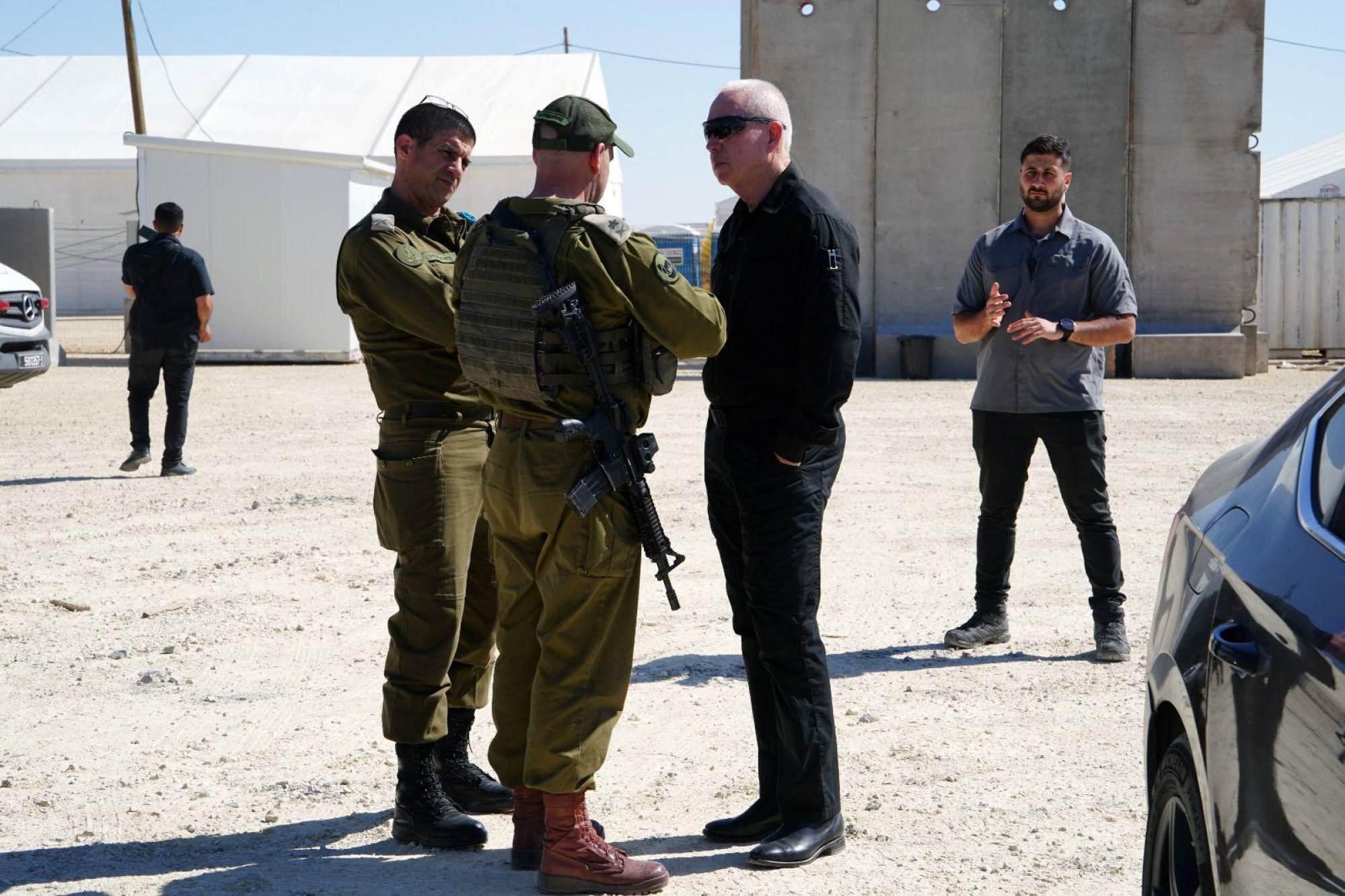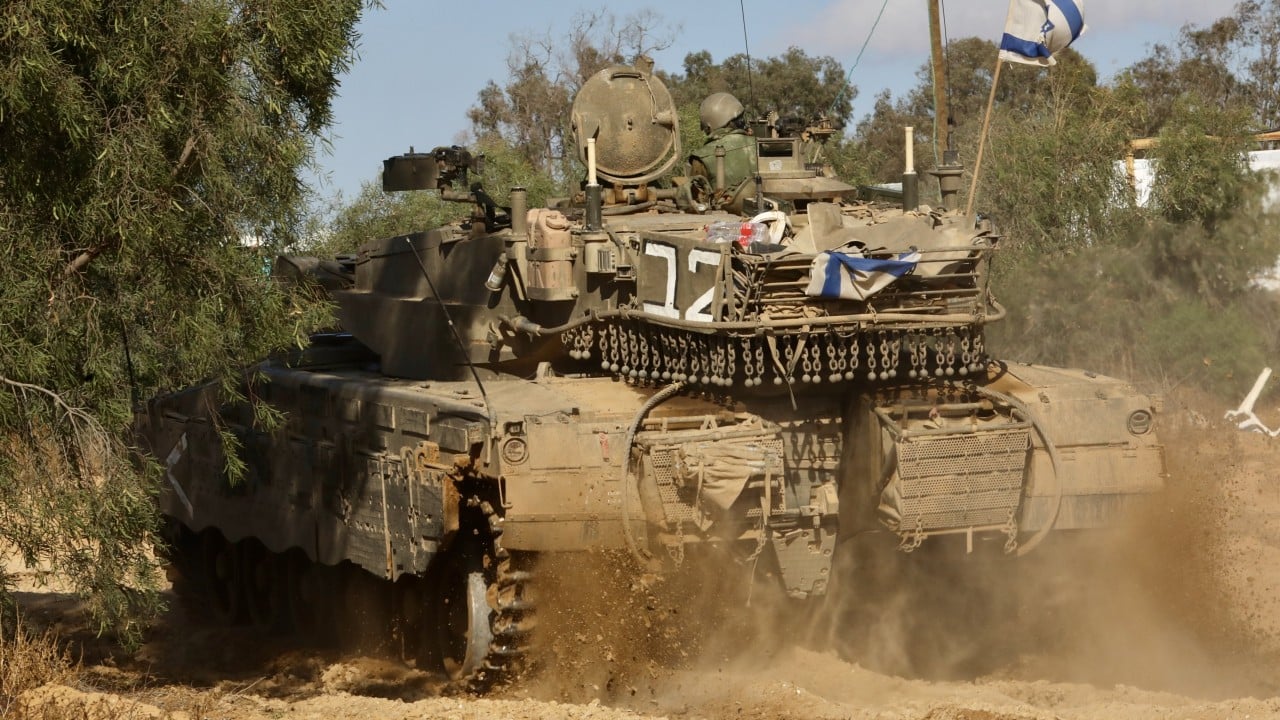Israel vowed on Thursday to “intensify” its ground offensive in Rafah, in defiance of global warnings over the fate of hundreds of thousands of Palestinian civilians sheltering in Gaza’s far-southern city.
Defence Minister Yoav Gallant said “additional forces will enter” the Rafah area and “this activity will intensify”.
“Hundreds of targets have already been struck, and our forces are manoeuvring in the area,” Gallant said following a troop visit on Wednesday.
Israel’s top ally, the United States, has joined other major powers in appealing for it to hold back from a full ground offensive against Hamas in Rafah, the last city in Gaza so far spared heavy urban fighting.
Prime Minister Benjamin Netanyahu has countered that a ground assault on Rafah is vital to the army’s mission of destroying Hamas to prevent any repetition of the October 7 attack that triggered the war.
Speaking on Wednesday, the premier said nearly half a million Palestinian civilians had already been evacuated from Rafah and argued that a much-feared humanitarian disaster had not materialised.

Many have fled to the coastal area of Al-Mawasi that Israel has declared a “humanitarian zone”, and satellite images show a vast new tent city has sprang up near the main southern city of Khan Yunis.
Many of those fleeing Rafah are “exhausted, they are scared, they don’t have resources”, said Javed Ali, head of emergency response in Gaza for International Medical Corps.
Ali, who works at a field hospital in Al-Mawasi and is an aid veteran of multiple war zones, said the situation in Gaza was “far more catastrophic” than anything he had seen before.
“The immense number of trauma cases, the lack of resources, the interrupted supply chain … It’s something that I’ve never seen.”
More than seven months into the conflict, Israeli forces were also fighting Palestinian militants in new flashpoints in northern and central Gaza.
Heavy battles rocked the Jabilia refugee camp where, military spokesman Nadav Shoshani said, there had been “intelligence indicating that Hamas was trying to reassemble its forces”.
The army said that five of its soldiers were killed in Jabilia on Wednesday when two Israeli tanks mistakenly shelled the building they were in.
“Five soldiers of the 202nd Paratrooper Battalion were killed last night in a mass casualty incident as a result of fire by our forces,” the military said, adding that seven troops were wounded.
Witnesses and doctors said Israeli warplanes again targeted areas across Gaza overnight, including in Gaza City and its southern Zeitun area, Jabilia and the Nuseirat refugee camp.
Washington has repeatedly urged its ally to take greater steps to protect civilians – and to make a post-war plan for Gaza to avoid being mired in a long counter-insurgency campaign.
Netanyahu insisted Wednesday that any planning for post-war Gaza was “empty talk” until Hamas is defeated.
In signs of a growing rift inside the war cabinet, Gallant called on Netanyahu to “declare that Israel will not establish civilian control over the Gaza Strip”.
“The ‘day after Hamas’ will only be achieved with Palestinian entities taking control of Gaza, accompanied by international actors, establishing a governing alternative to Hamas rule,” Gallant said.
Hamas chief Ismail Haniyeh – whose Islamist movement is blacklisted as a terrorist organisation by the European Union and the United States – insisted that “the Hamas movement is here to stay”.
Palestinian president Mahmoud Abbas told an Arab League meeting in Bahrain that Hamas’s “unilateral decision” to launch the October 7 attack had “provided Israel with more pretexts and justifications to attack the Gaza Strip”.
In a statement issued after the meeting, the 22-member bloc called for UN peacekeepers to be deployed in the occupied Palestinian territories until a two-state solution has been implemented.
The war broke out after the October 7 attack on southern Israel, which resulted in the deaths of more than 1,170 people, mostly civilians, according to Israeli official figures.
The militants also seized about 250 hostages, 128 of whom Israel estimates remain in Gaza, including 36 the military says are dead.

Military spokesman Shoshani said Thursday that “we know that there are hostages in Rafah [and] we are operating to create the conditions to bring them home”.
Israel’s devastating military retaliation has killed at least 35,272 people, mostly civilians, according to the health ministry in Hamas-ruled Gaza.
An Israeli siege on Gaza has brought dire shortages of food as well as clean water, medicines and fuel for its 2.4 million people. The threat of famine hangs over parts of the war-ravaged territory.
The arrival of occasional aid convoys has slowed to a trickle since Israeli forces took control last week of the Gaza side of the Rafah crossing.
The US military said Thursday it has completed a temporary pier on Gaza’s coast, part of a project to ship in relief supplies from the Mediterranean island of Cyprus.
UN agencies have warned, however, that the planned maritime aid corridor, and ongoing airdrops from planes, cannot replace far more efficient truck deliveries.

In a case before the International Court of Justice in The Hague, South Africa accused Israel on Thursday of stepping up what it called a “genocide” in Gaza, urging the court to order a halt to Israel’s assault on Rafah.
“As the primary humanitarian hub for humanitarian assistance in Gaza, if Rafah falls, so too does Gaza,” said South Africa in its submission.
“In attacking Rafah, Israel is attacking the ‘last refuge’ in Gaza, and the only remaining area of the Strip which has not yet been substantially destroyed by Israel,” the document added.
Israel, which is due to respond on Friday, has described South Africa’s case as unfounded and “morally repugnant”.


